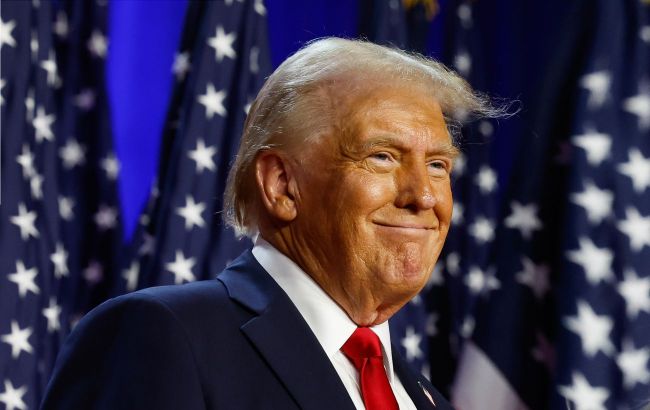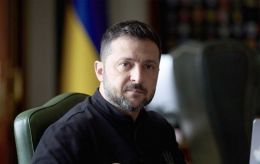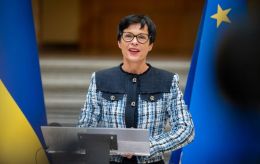Controversial statements on NATO and Ukraine war: What to expect from President Trump
 Photo: Donald Trump (Getty Images)
Photo: Donald Trump (Getty Images)
Donald Trump wins the US election. After the inauguration in January 2025, he will officially become president. During the election campaign, the Republican spoke sharply about NATO and global conflicts, especially regarding Ukraine.
For more details about Trump's statements and any possible risks from his residence, see the RBC-Ukraine article below.
Contents
- Why Trump talked about leaving NATO
- How Trump plans to end the war in Ukraine
- Why Trump needs a law on China
During his first term as president, Trump maintained support for Ukraine. For example, he provided Javelin missile systems. During the election campaign, the politician made controversial statements about both Kyiv and world politics.
Why Trump talked about leaving NATO
Speaking at his campaign headquarters after the election, Trump outlined his plans for global conflicts.
"I'm not going to start a war, I'm going to stop the wars," he said.
During his first term, Trump said that NATO members needed to increase their defense spending. Then, during a campaign rally in South Carolina on February 10, he mentioned how, during his presidency, he had threatened NATO states by saying the US would not defend those who were not paying their dues.
"I would encourage Russia to do whatever the hell they want," Trump said.
Since collective defense against aggression is the foundation of NATO, a US refusal to fulfill its obligations would de facto mean the disintegration of the alliance.
However, a week before the election, Trump’s vice-presidential candidate, JD Vance, told NBC News that Trump had no intention of leaving NATO.
"He (Trump) wants us to remain in NATO," Vance said.
According to Vance, Trump still wants NATO states to "carry their share of the defense burden."
How Trump plans to end the war in Ukraine
During his first term, Trump met with Russian president Vladimir Putin and Ukrainian President Volodymyr Zelenskyy.
He also said during the election campaign that he had a "good relationship" with the Kremlin leader.
The politician repeatedly emphasized that if elected, he would "pull America out of the war" and quickly end the conflict with phone calls to the presidents of Russia and Ukraine.
"On the evening of Nov. 5th, I will call Putin. I will call Zelenskyy. I’ll say, "We got to stop it." He vowed to make a deal in 24 hours.
On October 20, in an interview with The Wall Street Journal, Trump mentioned that he had threatened to strike Moscow if Putin continued to pursue Ukraine. Trump did not specify when or under what circumstances this conversation with Putin took place.
One way Trump proposed ending the war was by cutting energy prices in half or more within a year of taking office. He believes that "Putin could not fight when oil was $40 a barrel."
On September 27, Volodymyr Zelenskyy met with Donald Trump in New York and presented him with Ukraine’s victory plan. After the meeting, Trump stressed the importance of a "very fair and rather rapid deal."
"I learned a lot. I think I haven't changed from the standpoint, we both want to see it end and a fair deal made. It has to be fair. I think it will happen at the right time. I think it is going to happen ," Trump said after the meeting.
Why Trump needs a law on China
Trump has repeatedly said that China is the main foreign policy challenge for the US. In his view, China poses new threats to the world and undermines the US economy, taking jobs away from Americans.
At a rally on October 27 in New York, Trump announced that he would implement the "Trump mutual trade act", meaning if China or any other country imposes a 100 or 200% tax or customs tariff on the US, it will impose a 100 or 200% tax or tariff on them.
Regarding Taiwan's protection from potential Chinese aggression, Trump told The Wall Street Journal on October 20 that he would not need to use military force to prevent a blockade of Taiwan, as President Xi "respects me and knows that I am crazy."
Trump wins the election: How it was
On November 5, the US presidential election took place, with Donald Trump and Kamala Harris as the main contenders. Despite expectations of a prolonged vote count, the winner was determined by the morning of November 6. Trump gained over 270 electoral votes needed for the victory.
Trump has already declared himself the elected president, and dozens of world leaders, including Ukrainian President Volodymyr Zelenskyy, have congratulated him. Addressing his supporters, Trump stated his intention to end all wars.
Trump will officially become president on January 20, 2025. Until then, Joe Biden will remain head of the White House.
Sources: public statements by Donald Trump and JD Vance at rallies and their interviews with American media.

